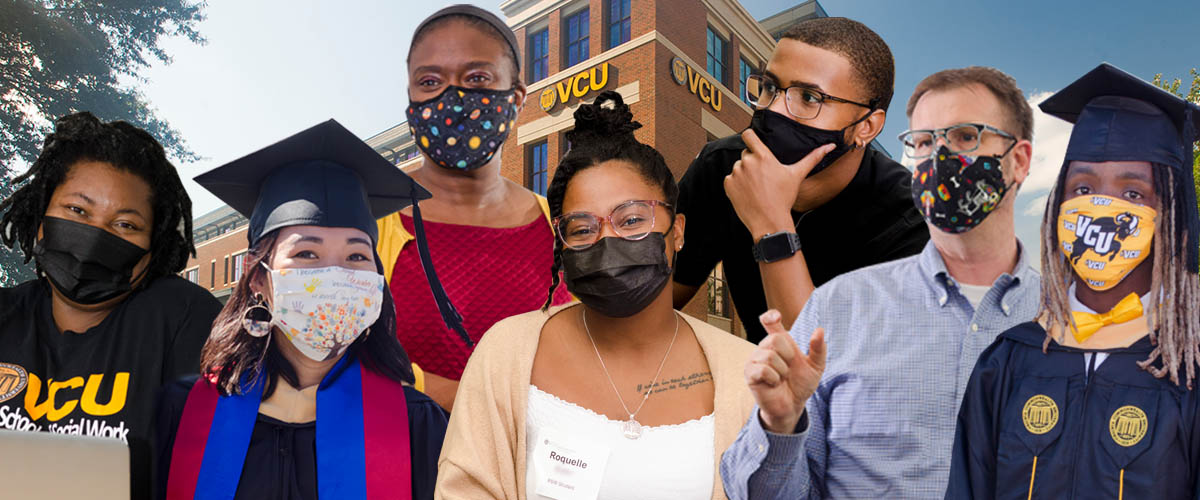
Navigating a pandemic and racial justice reckoning
How the VCU School of Social of Social Work has adapted and continues to seek equity after a critical self-examination
2020 has been called the year that changed everything: the intersection of a once-in-a-century pandemic with a long-overdue national reckoning in the centuries-long struggle for racial justice.
The COVID-19 pandemic has had staggering impacts on health and well-being, particularly among marginalized communities. Amid this public health crisis, the brutal killings of Ahmaud Arbery, Breonna Taylor and George Floyd – among many others – felt like repeated gut punches; and yet they were also an all-too-familiar reality in the long history of institutionalized anti-Black racism.
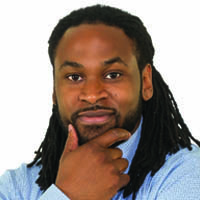
“For me, George Floyd didn’t feel different from Michael Brown or Trayvon Martin,” says social work Associate Professor in Teaching Daryl V. Fraser (B.S.’00/H&S; M.S.W.’07/SW). “More people had no choice but to see it and reflect on George Floyd since they were stuck at home.”
Amid these unprecedented circumstances, the Virginia Commonwealth University School of Social Work was challenged to dig deeper for new and adaptive ways to live out its mission to social justice and lay groundwork for the profession of the future. Part of that work was a critical self-examination of the school’s own history of anti-Black racism.
Here is a look back at how these experiences played out for faculty, students, alumni and community partners.
Pandemic adaptations
The full impact of the COVID-19 pandemic hit VCU and the School of Social Work in March 2020. To adapt, the school had to detail and coordinate myriad operational tasks.
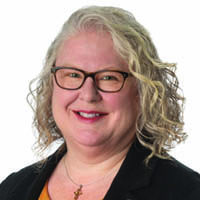
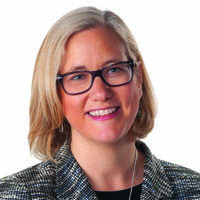
“It began to be very clear that we were in contingency planning mode,” says Beth Angell, Ph.D., the school’s dean and professor. “How would we protect students and still ensure that they met their field requirements? How would we shift instruction to ensure faculty and student safety and continued learning? How would we continue our business operations if our employees needed to work at home?”
Sarah Kye Price, Ph.D., associate dean for faculty development and professor, describes the same kinetic atmosphere.
“We were hearing about this highly contagious virus, quarantines, lockdowns, stay-at-home orders, and our first reaction was to get all together in one room. There’s something human and comical about that. About halfway through our conversations, the reality of our discussion was starting to set in, and we started talking about how we could maintain this collaboration virtually. We thought we better start a Google Doc!”
The school’s plan of attack took shape in that document. First, the health and safety of 800 students and about 70 faculty and staff. How to adjust 110 courses to be effective remote learning experiences, and how to help support over 100 adjunct faculty and field liaisons. And how to keep the School of Social Work working, connected and cared for.
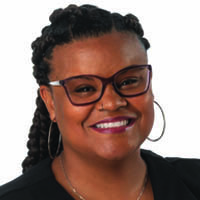
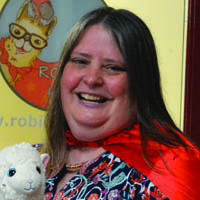
“It was chaotic at the front end,” says alum Jennifer Kell (M.S.W.’96/SW), executive director of Robin’s Hope, a Richmond trauma recovery center and field partner. “But the school was really focused on the safety of the students and addressing changes as quickly as possible. They had to think through so many layers. Requirements for field placement hours. Standing up virtual school so quickly with people who are differently abled with technology. Their efforts and care were really nice to see.”
Having built and launched a fully online M.S.W. Program in 2019, faculty and administrators had experience in virtual learning and could offer resources and support to others.
“Our online program truly gave us a road map of what works well for online students and also gave us opportunities to look at how the content needed to be adapted for students who were expecting to be in an on-campus program but now were learning remotely,” says Director of Online Education Stevara Haley Clark (B.S.W.’09/SW; M.S.W.’10/SW; Ed.D.’21/E).
While classes and operations pivoted quickly to remote delivery, the entire community struggled to adapt to all the changes to everyday life, the need to safeguard their own health and, for some, the grief of loved ones lost to COVID-19. It also became quickly apparent that the pandemic was disproportionately impacting people of color, whose experience with systemic racism over time made them more vulnerable. These circumstances were adding to racial injustice conversations already happening within the school.
Racial reckoning within the school
In 2014, in the aftermath of the killing of Michael Brown in Ferguson, Missouri, the school set in motion the development of an organization and a response. Social work faculty, students and alumni created the Black Lives Matter Student-Faculty-Alumni Collective, an informal organization within the school.
The collective worked together to create an educational initiative for students called “Richmond [Re]Visited” to explore the city’s history of slavery, segregation, discrimination and racism, and to provide context to current issues. The collective and a student organization, the Association of Black Social Workers, created inclusive spaces for students of color within the school.
Still, these students encountered harmful experiences in classrooms and the school environment in general. By Spring 2019, the lived experiences of people of color within and connected to the school had triggered a reality check about the need for change within the school.
A group of students and alumni developed a list of social justice demands for the school to address and adopt as a way of “walking the talk” that their profession embodies.
“These demands are an extension of the civil rights movement,” Fraser says. “As demands, they ‘demanded’ a response. These were solutions to issues and problems that had been going on at the school for a while.”
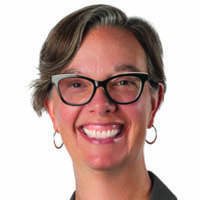
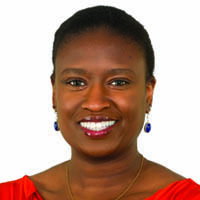
Nicole Lee, Ph.D., the M.S.W. Program director and associate professor in teaching, agrees. “We have to remember that the word ‘movement’ really just defines a point in time when non-oppressed people become aware of the oppression that others face. In essence, for many people of color, this movement is really about society acknowledging and seeing them.”
The list of demands included that the school develop a public position statement on all forms of injustice, respond to events of injustice with a public acknowledgement, create structure and systems for reporting bias incidents, review and revamp course curriculum, and more.
Alex Wagaman, Ph.D., associate professor, says the school had difficulty at first in receiving these demands, but discussions were beginning to happen. Dr. Angell, the dean, agrees.
“While we want our students to learn the skills of advocacy, we aren’t always ready for them to use them on us!” Dr. Angell says. “So I will admit to feeling blindsided, initially.”
After spending time with the authors of the demands to hear their experiences and concerns, Dr. Angell began to view the document differently – not as a type of protest, but as a communication of concern and feedback to the school. She notes one of the key lessons she learned was how important it is to create opportunities for student voices, so that negative experiences could be addressed before they reach a crisis point.
By the time the COVID-19 crisis became a reality, confronting anti-Black racism within the school had become even more urgent and necessary. Incidents in classrooms and the school environment came to the fore, and students with marginalized identities sounded the alarm regarding unaddressed issues – overt and covert – in their field placements and classes. Moreover, the school needed better ways to process and work through these events after they occurred, to promote resolution and healing.
A RAACE-based response
The start of the Fall 2020 semester looked very different than it had only a year before. Nearly all classes were virtual, and students, faculty and staff alike had mastered the art of the Zoom meeting. While many initiatives and activities were paused, the school was determined to move forward with its racial justice agenda.
The school created a statement of Commitment to Social and Racial Justice, and voted to create a new task force, the Radical Alliance for Anti-Racism, Change and Equity (RAACE). RAACE was designed as a “trickle-up” effort that would center the contributions of students, full-time and adjunct faculty, staff and alumni.
“This work is our responsibility. This is our code of ethics,” says Fraser, RAACE co-chair. “Social work as a profession hasn’t lived up to our code of ethics. Some do better than others, but we have to be honest with ourselves if we want to move our profession forward.”
Dr. Wagaman agrees, and as co-chair, adds that “the work of racial justice doesn’t sit only within RAACE. It is a school-wide effort and part of a much bigger and longer history.”
“This wasn’t a direct response to what was happening on the streets,” Dr. Wagaman adds, “but what was happening on the streets gave us a window and momentum to leverage. Our students were in the streets, and we were trying to figure out how best to support them. It was a real time of reckoning.”
That summer, a group of Black social work students watched events unfold following Floyd’s murder and were worried how they would be discussed in classes and how faculty would facilitate discussions when the fall semester began.
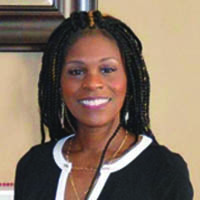
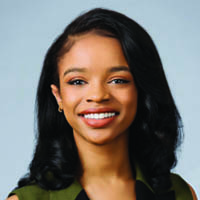
“We wanted to bring attention to what was happening and had been happening in the community from a social and racial perspective and how those things could be addressed in the classroom,” says alum Bryana Berry (M.S.W.’21/SW), who as a student brought the idea to the school’s chapter of the Association of Black Social Workers. “We wanted to talk with the faculty about a better way to have these discussions.”
As president of the M.S.W. Student Association, Berry worked with ABSW and the school to develop and host an event, “Trending Trauma: Unpacking Race and Civil Rights in the Classroom.” The event had a panel of six students from a variety of backgrounds, and about 200 people attended.
“No one wanted to ignore the social unrest in the community, but we did want to talk about it in a solutions-based, respectful way,” Berry says. “The School of Social Work gave the floor to people who needed the floor.”
Felicia Smith, M.S.W. student and president of ABSW in 2020-21, agrees about the importance of the event. “Being an African-American woman, being a woman who has a husband, a son and nephews, sitting in the classroom and hearing about these trending topics and what is going on can retraumatize me. It is my lived experience. Unless it is your lived experience, you may not understand this.”
Adapting in the field
As students and faculty worked to find common ground in the classroom and adjust to the ongoing “new normal” of remote learning, the school was continuing to evolve social work learning experiences, especially in field education.
The Council on Social Work Education (CSWE) responded to the emergent needs of field students during the beginning of the pandemic to provide flexibility and support for student completion of field education expectations. The Office of Field Education utilized this flexibility to adjust the number of required internship hours and worked with agencies to create virtual and hybrid internships in situations where agencies were not operating face to face.
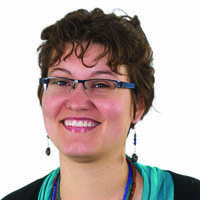
“Our field partners have been amazing and really stepped up to make sure the students were still getting good learning experiences,” says Cameron Carter ( M.S.W.’09/SW), assistant director of field education. “Our network of community partners thoughtfully considered their capacity and the quality of the learning experience they could provide during the pandemic.
“While some were not able to provide student opportunities due to the impact of the pandemic, we were able to build on community connections to create new partnerships, especially with our colleagues throughout VCU. We have really worked to uphold standards and the integrity of the field education program, and make sure students are coming out as skilled social workers when they graduate.”
Carter, who served as the interim field director starting in Summer 2020, advised the school leadership team in developing protocols and an FAQ document to help guide students and community partners.
“We worked to address all the competing needs in our student population,” she says. “Many of our students are first-generation or starting a second career. They may have needs around housing stability, food security, employment and childcare. We wanted to hold that all central to understanding their needs.”
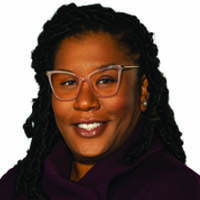
The pandemic’s impact has given students ample opportunities to apply the lessons of social work practice in adapting to stressful and emergent circumstances.
“I think the last 18 months have shown students what it is like to be a social worker in real time, beyond a textbook,” says Stephanie Odera (B.S.W.’04/SW; M.S.W.’06/SW; Ed.D.’18/E), who started as director of field education during Fall 2020. “They have been able to witness community outreach and organizing during a time when many people lost their source of income or had to stay home to provide virtual instruction for children. Our service delivery systems had to adjust almost immediately, and students got to witness and take part in that.”
The path forward
Interest in social work education at VCU has never been higher, with an all-time peak in enrollment with just over 1,100 students in Fall 2021. The profession has never been more needed than at this time in history.
“We are the only profession that has direct skills in all of these areas,” says Kell, the Robin’s Hope director. “We can be in the hospital supporting patients with medical crises. We can be working in governance and advocacy to see social change. We can be clinicians to clean up the aftermath and trauma. We are definitely called to be in the mix.”
Dr. Lee, the M.S.W. director, agrees. “Social workers are uniquely positioned to assist in these times. The combination of theoretical knowledge and practical experience is what creates the social worker. This type of education crafts an experience that teaches students how to be a catalyst for changes in real-world situations.”
I have been amazed at how well we’ve adjusted and remained flexible during the ongoing pandemic. As social workers, this is what we do. We respond to changing landscapes as best as possible in service to others.
Stephanie Odera
Students are graduating with a different skill set than those before them. The social work field has had to become more creative and innovative in interactions with clients.
“I have been amazed at how well we’ve adjusted and remained flexible during the ongoing pandemic,” Dr. Odera says. “As social workers, this is what we do. We respond to changing landscapes as best as possible in service to others. Many of the faculty, staff and students have been impacted personally by the pandemic and yet still remain dedicated to the profession and the work of educating students.”
“I am hoping we hold tight to the lessons learned during this time and continue to take care of each other moving forward,” she adds.
In line with the quest to center racial justice, the school is also taking a more critical look at its curriculum and delivery. Teaching through an anti-oppressive lens requires thinking not only about course content, but also rethinking how to create pathways for students who require flexible educational options due to work and family responsibilities.
“Since we've been operating under the context of the pandemic, we’ve had opportunities to explore updates to our curriculum to ensure we were truly teaching 21st century social work practice,” says Dr. Clark, the director of online education. “We've also gotten feedback from our students regarding what our M.S.W. Program could look like if we were to offer a hybrid program.”
Dr. Angell also emphasizes the need to examine course content.
“Our professional curriculum was not really designed to center racial justice and equity, even though we talk a lot about social justice in general. I think there is wide agreement within our school that we need to work to transform the curriculum, but like many other schools of social work, we are grappling with how to do that in ways that go beyond superficial, cosmetic changes to course syllabi.”
I feel really hopeful with the way people have been taking such care to do this work together. It feels like a new possibility.
Alex Wagaman
The good news, say Dr. Wagaman and Fraser, is that the pandemic has shown that anything is possible when you are faced with a new normal.
“Some of the things we were told weren’t possible, I can see people starting to view possibilities and laying claim to them, and that’s exciting,” Dr. Wagman says. “I feel really hopeful with the way people have been taking such care to do this work together. It feels like a new possibility.”
Adds Fraser: “We have the ability to create our own reality. I was on the Reimagining Public Safety Committee for the City of Richmond, and we were trying to determine how social service organizations working from home can service clients that are off the traditional 9 to 5 clock. We could construct a reality we need and want.”
Those needs and wants are not going away. COVID-19’s impact will be felt for years, if not decades. If history has proven anything, it is that the pursuit of racial and social justice moves slowly. The work continues at the school, with the newfound realization that change – a new reality – is possible.
“The pandemic is not over,” says Dr. Price, the associate dean for faculty development. “We’re still offering hybrid models of instruction. The virus is still infecting, and people are still scared. The racial and social injustice movement is not over. We can’t let slip our momentum and intentionality confronting injustice and promoting diversity and equity.”
Nicole van Esselstyn, a freelance writer based in Richmond, Virginia, contributed to this article.